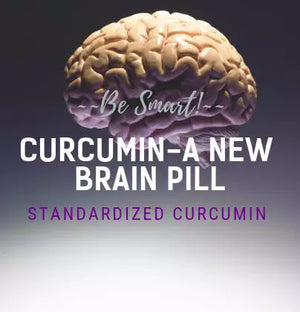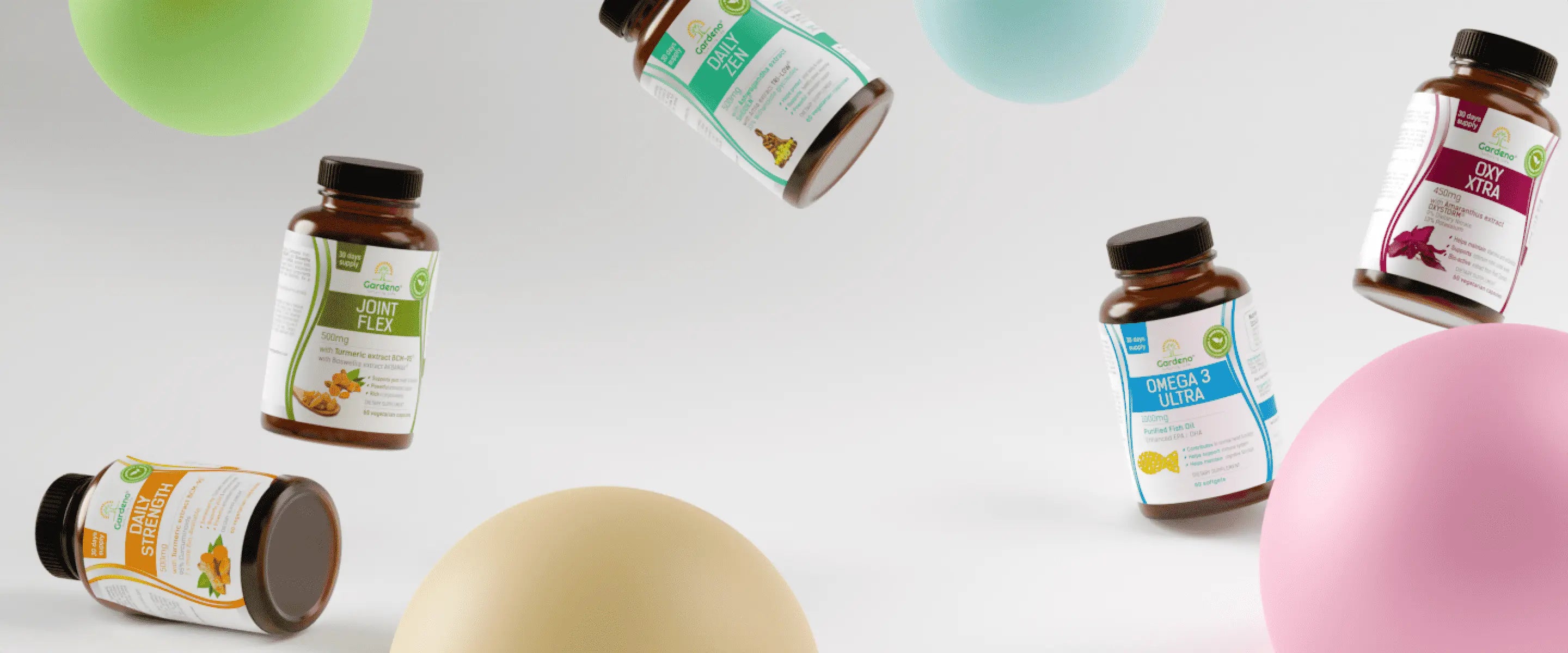
Brain-Fit with Curcumin supplements
Posted:Healthy life requires a healthy brain at all age levels.
The neuronal tissue of the brain and its blood vessel network are exposed to the same inflammation and free radicals oxidative damage that endanger other vital tissues and structures of the body.
Curcumin is the new promising active ingredient that may help in fighting neuro-degeneration and age-related threats to brain health and helps to preserve youthful cognitive function, memory, and learning.
Curcumin is the powerful anti-oxidant active component from Turmeric (Curcuma Longa) root extract that has been proved to have anti-inflammatoryactionthat also support and protect the brain against various degenerative diseases .1-9
Clinical research studies show that Curcumin can reduce anxiety and depression, promote neural tissue growth and prevents age-related brain conditions such as Alzheimer’s disease, Parkinson’s disease, stroke etc. which all share an important connection with oxidative stress and inflammation.
For example, studies done on human subjects, showed that taking a daily dose of 1,000 mg of bioavailable Curcumin has been proved to be more effective in improving mood-related symptoms than placebo and also reduced the symptoms of anxiety among a group of obese subjects with depression and anxiety.
Various clinical studies and laboratory trials show that Curcumin is able to stimulate the production of brain-derived neurotropic factor (BDNF), vital to retaining cognitive and memory skills and is involved in creating new connections between brain cells, the so called brain plasticity.
Based on bio-availability and potency, various types of Curcumin extracts are already benefiting of the hype as a powerful health-promoting nutrient.
Now may be just the right time to add it to your brain-health daily protection supplementation.
- Tizabi Y, Hurley LL, Qualls Z, et al. Relevance of the anti-inflammatory properties of curcumin in neurodegenerative diseases and depression. Molecules. 2014;19(12):20864-79.
- Ng QX, Koh SSH, Chan HW, et al. Clinical Use of Curcumin in Depression: A Meta-Analysis. J Am Med Dir Assoc. 2017;18(6):503-8.
- Lopresti AL, Drummond PD. Efficacy of curcumin, and a saffron/curcumin combination for the treatment of major depression: A randomised, double-blind, placebo-controlled study. J Affect Disord. 2017;207:188-96.
- Esmaily H, Sahebkar A, Iranshahi M, et al. An investigation of the effects of curcumin on anxiety and depression in obese individuals: A randomized controlled trial. Chin J Integr Med. 2015;21(5):332-8
- Rainey-Smith SR, Brown BM, Sohrabi HR, et al. Curcumin and cognition: a randomised, placebo-controlled, double-blind study of community-dwelling older adults. Br J Nutr. 2016;115(12):2106-13.
- DiSilvestro RA, Joseph E, Zhao S, et al. Diverse effects of a low dose supplement of lipidated curcumin in healthy middle aged people. Nutr J. 2012;11:79.
- Liu S, Cao Y, Qu M, et al. Curcumin protects against stroke and increases levels of Notch intracellular domain. Neurol Res. 2016;38(6):553-9.
- Dikshit P, Goswami A, Mishra A, et al. Curcumin induces stress response, neurite outgrowth and prevent NF-kappaB activation by inhibiting the proteasome function. Neurotox Res. 2006;9(1):29-37.
- Xu Y, Lin D, Li S, et al. Curcumin reverses impaired cognition and neuronal plasticity induced by chronic stress. Neuropharmacology. 2009;57(4):463-71.
- Wu A, Ying Z, Gomez-Pinilla F. Dietary curcumin counteracts the outcome of traumatic brain injury on oxidative stress, synaptic plasticity, and cognition. Exp Neurol. 2006;197(2):309-17.







